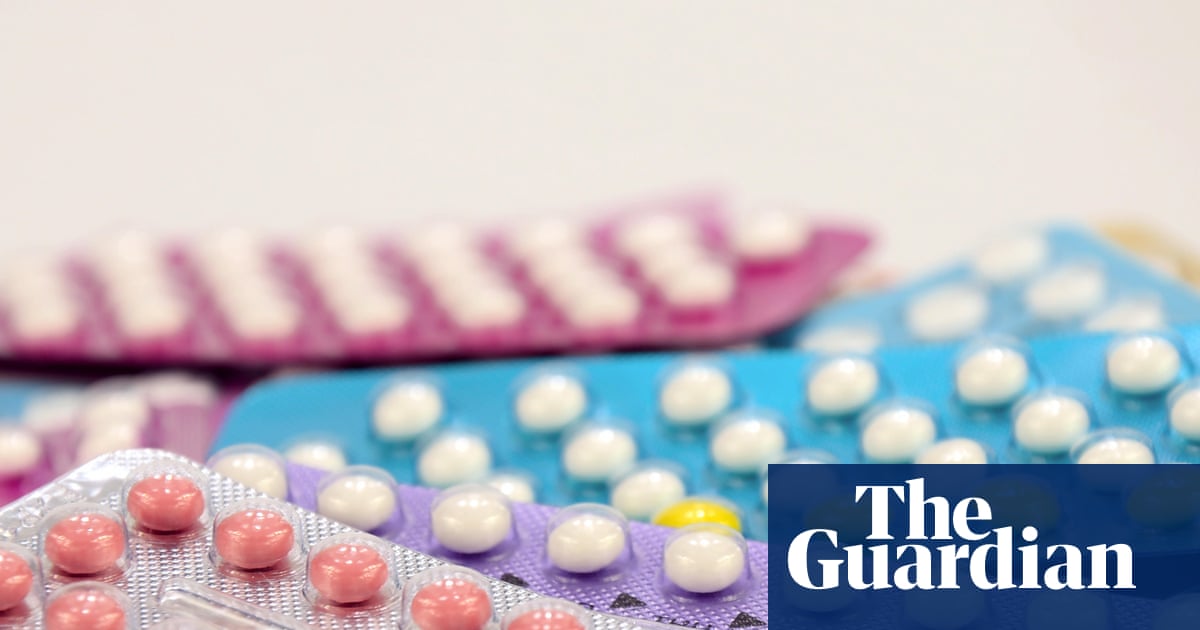Social media misinformation about the contraceptive pill is encouraging women to view it so negatively that many give it up, a study has found.
Researchers have identified myths spread on TikTok and other social media platforms as a key driver of users suffering side-effects that are real but psychological in origin. It is called the “nocebo effect”, the opposite of the better-known placebo effect.
Experiencing it is closely linked to anxiety, depression and fatigue, with experts saying people become “wary of anything that they believe might make [the conditions] worse”. This, in turn, spurs on the effect.
It has been seen with other medicines, but the study, by psychologists at Sheffield University, is the first to link the syndrome with use of the pill, which has fallen sharply.
The pill remains the most popular form of contraception in England, but the proportion of women who access NHS sexual health services and use the pill as their form of birth control fell from 39% in 2020-21 to 28% in 2023-24.
Sexual health experts believe the decline in uptake, and the fact that two-thirds of women who use it stop doing so within two years, is a major reason why the number of abortions in England and Wales has risen sharply in recent years and hit an all-time high of 251,377 in 2022 – 17% up on the previous year.
NHS bosses are worried about the role of influencers on TikTok and YouTube, who have posted content that warns women against using the pill and advocate using “natural” birth control instead.
For example, one has claimed that the pill “robs us of our health” because of “common” side-effects including an alleged heightened risk of thyroid problems, blood clots and strokes.
Dr Rebecca Webster and Lorna Reid, the co-authors of the study, found that the “nocebo effect” involved four psychological factors that were associated with women having a negative experience of the pill. They were:
-
An expectation at the outset that the pill will be harmful.
-
Low confidence in how medicines are developed.
-
A belief that medicines are overused and harmful.
-
A belief that they are sensitive to medicines.
“The evidence suggests that many of the commonly reported side-effects of hormonal contraception are a result of psychological, or nocebo, response to the act of taking oral contraceptives,” Webster said.
“Despite these being psychological in origin, it’s important to understand that these are very real experiences for women, often affecting their decision to continue taking the pill.”
The authors wrote: “Medicine-related beliefs were associated with increased experience of oral contraceptive side-effects, demonstrating the potential role that nocebo-related factors may have in impacting oral contraceptive side-effect experience.”
Their findings were based on a study of 275 women aged 18-45 who had used the pill over the previous 18 months. Almost all – 266 (97%) – experienced at least one side-effect while doing so.
They found that women’s expectations that they would have a negative experience of the pill from the outset often proved self-fulfilling. But negative messaging about the pill in the media and a belief that medicines are harmful or over-used raised the risk of them reacting badly to it.
“I think since Covid there’s the anti-facts, anti-big pharma rhetoric coming out on social media. I think that’s had an effect”, said Dr Janet Barter, the president of the College of Sexual and Reproductive Healthcare, which represents sexual health specialists.
“But I think also we know that a lot of young people are suffering with their mental health, with either depression or particularly anxiety. So they’re likely to be very wary of anything that they believe might make that worse.”
Brook, a large sexual health services provider, also blamed online misinformation for helping to create the “nocebo effect” the researchers identified.
“Young people in particular are influenced by what they see and hear about contraception. People in our clinics are increasingly expressing concern about hormonal contraception due to things they have heard on social media”, said Laua Domegan, Brook’s head of nursing.
“Common myths include that the pill will make you gain weight, will impact your long-term fertility or even affect the kinds of people you are attracted to.”
Misinformation about the pill was gaining traction because health professionals did not give women enough information about contraception and also because schools did not include enough about it in sex and relationships classes, she added. More “honest conversations” were needed, she said.
However, Webster and Reid argue in their paper, published in Perspectives on Sexual and Reproductive Health, that because many women’s bad reactions to the pill are psychological in origin, that “psychological interventions” – such as challenging negative beliefs about medication – could be used to cut side-effects and keep them using the pill.
